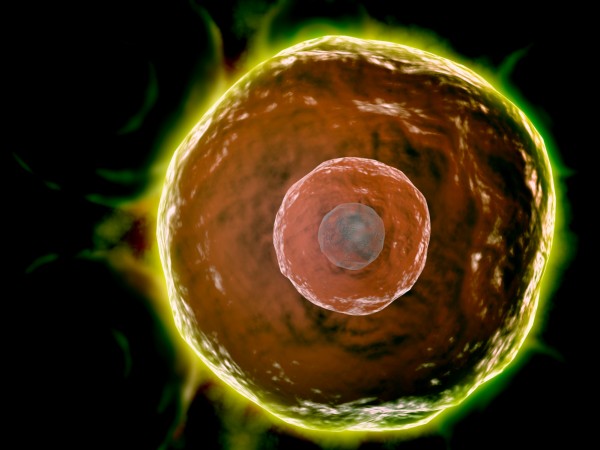Article successfully added.
CyFlow™ CD11a PE

| Application: | Flow cytometry |
| Clonality: | monoclonal |
| Target Species: | Human |
| Regulatory Status: | RUO |
| Laser: | Blue, Green, Yellow |
| Source Species: | Mouse |
| Field of Interest: | Immunophenotyping |
| Format/Fluorochrome: | PE |
| Excitation Maximum: | 496 nm, 565 nm |
| Emission Maximum: | 576 nm |
| Isotype: | IgG1 |
| Antigen: | CD11a |
| Alternative Name: | LFA-1 |
| Clone: | MEM-25 |
| Order number: | BK324379 |
For Research Use Only
Not for use in diagnostic or therapeutic procedures.
Quantity 100 tests Volume 2.0 mL Immunogen Leukocytes of a patient suffering from... more
Product information "CyFlow™ CD11a PE"
| Quantity | 100 tests |
| Volume | 2.0 mL |
| Immunogen | Leukocytes of a patient suffering from LGL-type leukemia |
| Background Information | CD11a (LFA-1 α) together with CD18 constitute leukocyte function-associated antigen 1 (LFA-1), the αLβ2 integrin. CD11a is implicated in activation of LFA-1 complex. LFA-1 is expressed on the plasma membrane of leukocytes in a low-affinity conformation. Cell stimulation by chemokines or other signals leads to induction the high-affinity conformation, which supports tight binding of LFA-1 to its ligands, the intercellular adhesion molecules ICAM-1, -2, -3. LFA-1 is thus involved in interaction of various immune cells and in their tissue-specific settlement, but participates also in control of cell differentiation and proliferation and of T-cell effector functions. Blocking of LFA-1 function by specific antibodies or small molecules has become an important therapeutic approach in treatment of multiple inflammatory diseases. For example, humanized anti-LFA-1 antibody Efalizumab (Raptiva) is being used to interfere with T cell migration to sites of inflammation; binding of cholesterol-lowering drug simvastatin to CD11a allosteric site leads to immunomodulation and increase in lymphocytic cholinergic activity. |
| Usage | The reagent is designed for Flow Cytometry analysis of human blood cells. Recommended usage is 20·µl reagent·/ 100·µl of whole blood or 10^6 cells in a suspension. The content of a vial (2 ml) is sufficient for 100 tests. |
| Storage Buffer | The reagent is provided in stabilizing phosphate buffered saline (PBS) solution, pH ≈7.4, containing 0.09% (w/v) sodium azide and 0.2% (w/v) BSA. |
| Storage | Avoid prolonged exposure to light. Store in the dark at 2-8°C. Do not freeze. |
| Stability | Do not use after expiration date stamped on vial label. |
Technical Data Sheet
Similar products
FITC
CyFlow™ CD1a FITC
| Antigen: | CD1a |
| Clone: | SK9 |
| Application: | Flow cytometry |
| Regulatory Status: | RUO |
| Target Species: | Human | Quantity: | 100 tests |
PE
CyFlow™ CD1a PE
| Antigen: | CD1a |
| Clone: | SK9 |
| Application: | Flow cytometry |
| Regulatory Status: | RUO |
| Target Species: | Human | Quantity: | 100 tests |
APC
CyFlow™ CD1a APC
| Antigen: | CD1a |
| Clone: | SK9 |
| Application: | Flow cytometry |
| Regulatory Status: | RUO |
| Target Species: | Human | Quantity: | 100 tests |
Purified
CyFlow™ CD1a Purified
| Antigen: | CD1a |
| Clone: | SK9 |
| Application: | Flow cytometry, Immunoprecipitation |
| Regulatory Status: | RUO |
| Target Species: | Human | Quantity: | 0.1 mg |
FITC
CyFlow™ CD1b FITC
| Antigen: | CD1b |
| Clone: | SN13 |
| Application: | Flow cytometry |
| Regulatory Status: | RUO |
| Target Species: | Human | Quantity: | 100 tests |
Purified
CyFlow™ CD1b Purified
| Antigen: | CD1b |
| Clone: | SN13 |
| Application: | Flow cytometry, Immunohistochemistry, Immunoprecipitation |
| Regulatory Status: | RUO |
| Target Species: | Human | Quantity: | 0.1 mg |
PE
CyFlow™ CD1c PE
| Antigen: | CD1c |
| Clone: | L161 |
| Application: | Flow cytometry |
| Regulatory Status: | RUO |
| Target Species: | Human | Quantity: | 100 tests |
Purified
CyFlow™ CD1c Purified
| Antigen: | CD1c |
| Clone: | L161 |
| Application: | Flow cytometry, Immunohistochemistry, Immunoprecipitation |
| Regulatory Status: | RUO |
| Target Species: | Human | Quantity: | 0.1 mg |
